point where individuals, teams, and whole organizations can, with
some straightforward interventions, significantly increase their capacity to get things done.by Tony Schwartz
FindSlide.org - это сайт презентаций, докладов, шаблонов в формате PowerPoint.
Email: Нажмите что бы посмотреть
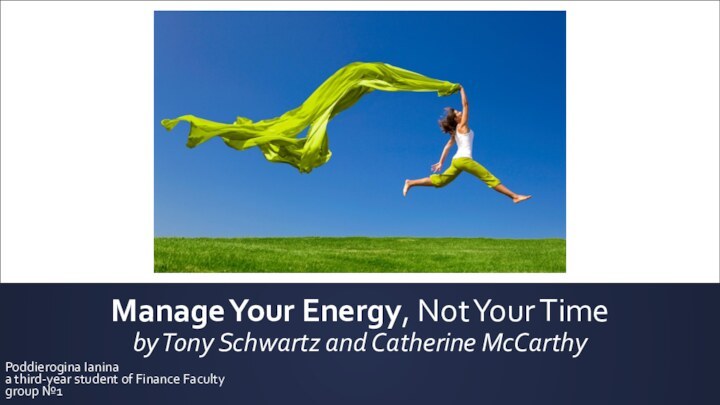


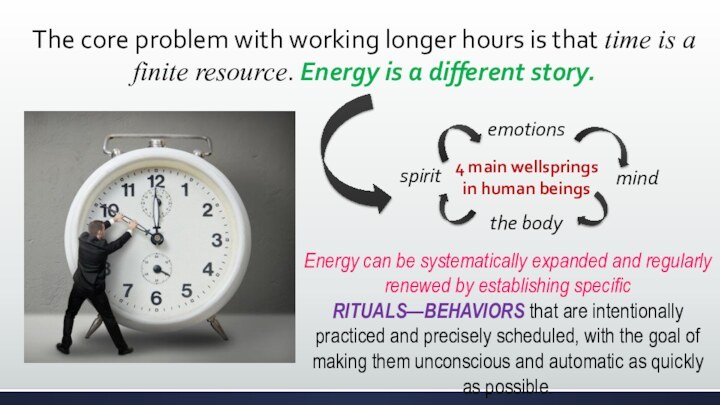



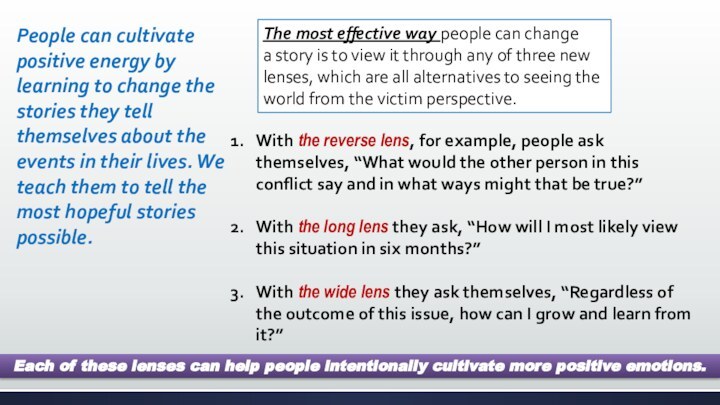
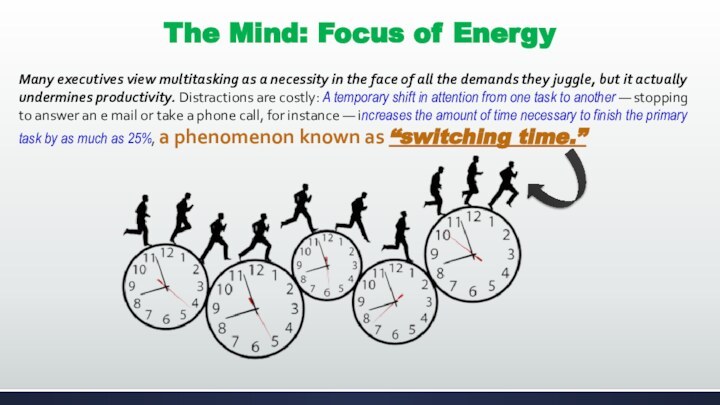
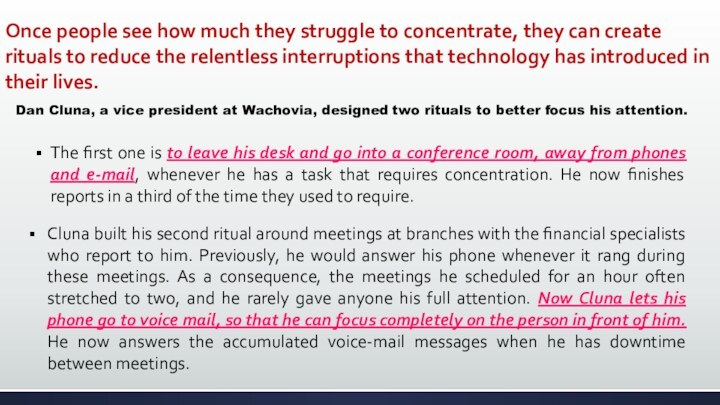

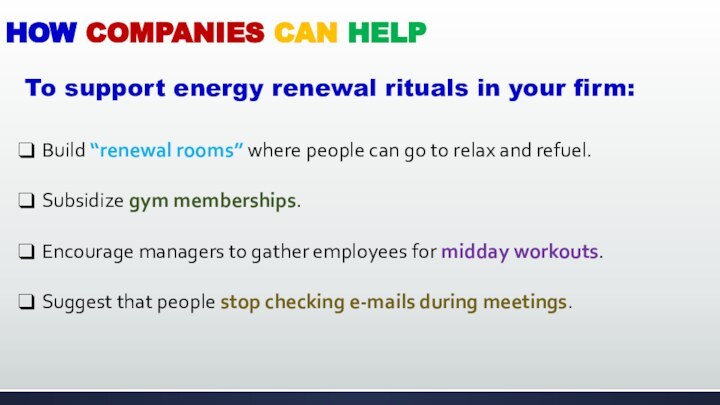
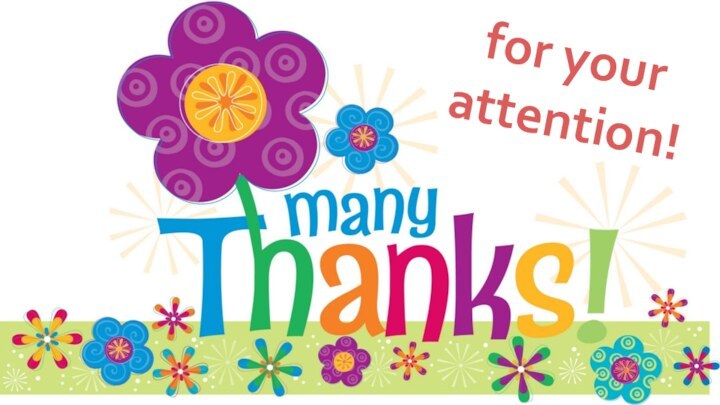
by Tony Schwartz
when he arrives at home in the evening, he’s more relaxed and better able to connect with his wife and children.
found it DIFFICULT to fully engage with his family in the evenings, which left him feeling guilty and dissatisfied.
a year ago…
The core problem with working longer hours is that time is a finite resource. Energy is a different story.
an energy audit
Participants get eight to ten of those 16 questions “wrong,” meaning they’re doing things such as:
skipping breakfast,
failing to express appreciation to others,
struggling to focus on one thing at a time,
spending too little time on activities that give them a sense of purpose.
getting up to talk to a colleague about something other than work,
listening to music on an iPod,
walking up and down stairs in an office building.
Without intermittent recovery, we’re not physiologically capable of sustaining highly positive emotions for long periods.
One simple but powerful ritual for defusing negative emotions is what we call “buying time”. Deep abdominal breathing is one way to do that. Exhaling slowly for five or six seconds induces relaxation and recovery, and turns off the fight-or-flight response.
The most effective way people can change
a story is to view it through any of three new
lenses, which are all alternatives to seeing the
world from the victim perspective.
With the reverse lens, for example, people ask themselves, “What would the other person in this conflict say and in what ways might that be true?”
With the long lens they ask, “How will I most likely view this situation in six months?”
With the wide lens they ask themselves, “Regardless of the outcome of this issue, how can I grow and learn from it?”
Each of these lenses can help people intentionally cultivate more positive emotions.
Cluna built his second ritual around meetings at branches with the financial specialists who report to him. Previously, he would answer his phone whenever it rang during these meetings. As a consequence, the meetings he scheduled for an hour often stretched to two, and he rarely gave anyone his full attention. Now Cluna lets his phone go to voice mail, so that he can focus completely on the person in front of him. He now answers the accumulated voice-mail messages when he has downtime between meetings.
The first one is to leave his desk and go into a conference room, away from phones and e-mail, whenever he has a task that requires concentration. He now finishes reports in a third of the time they used to require.
Dan Cluna, a vice president at Wachovia, designed two rituals to better focus his attention.
To access the energy of the human spirit, people need to clarify priorities and establish accompanying rituals in three categories:
doing what they do best and enjoy most at work;
consciously allocating time and energy to the areas of their lives —
work, family, health, service to others—they deem most important;
and living their core values in their daily behaviors.